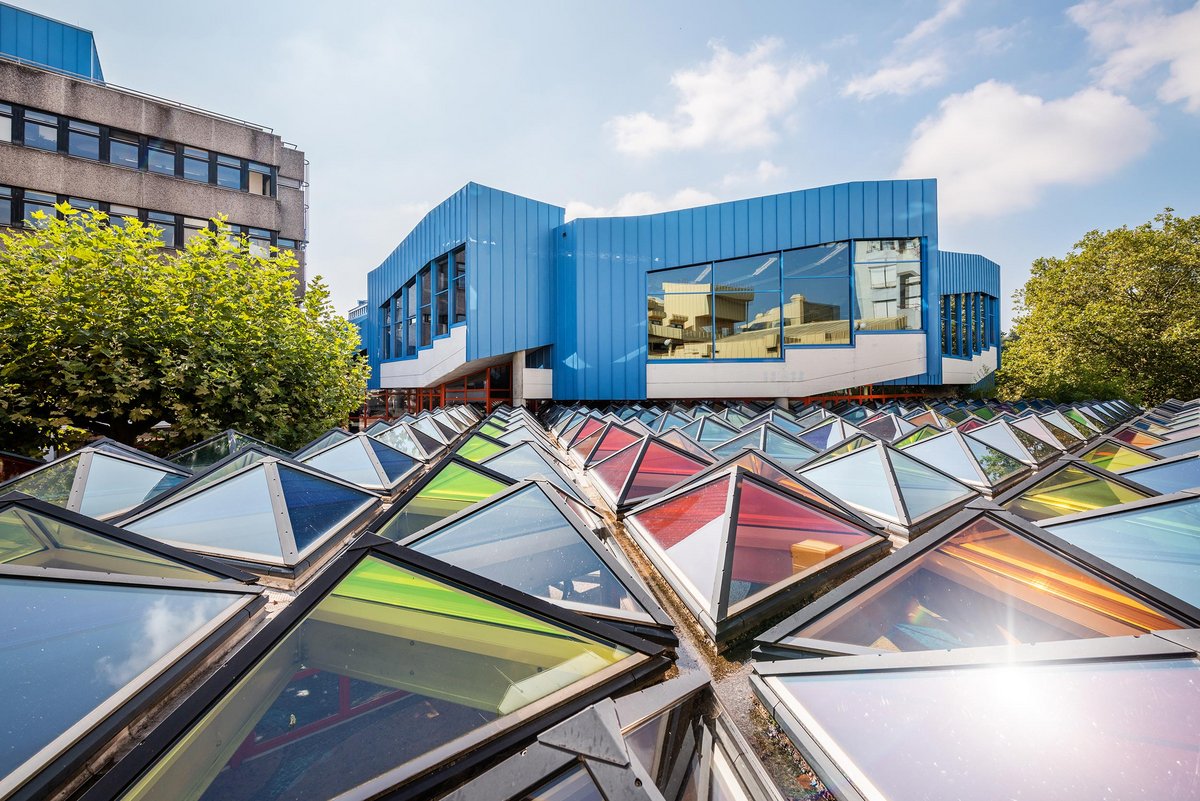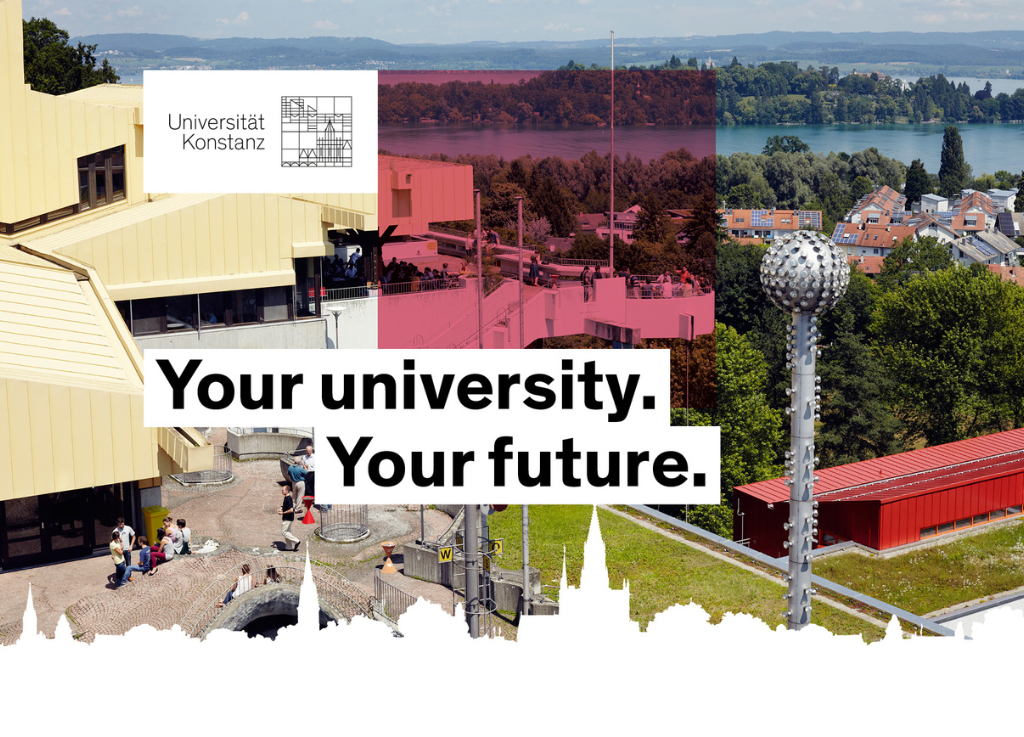
Gender Studies – Bachelor-Nebenfach
Gender Studies minor at the University of Konstanz is an interdisciplinary programme, involving not only sociology, but also history and literature. In Gender Studies, you analyse the current relationship between the genders in different areas of society (e.g. labour market, educational system, family) and study how it developed historically and how it is changing.
A key insight in women’s and gender studies is that gender and relationships between genders are not a forgone conclusion of nature, but above all social phenomena, the results of interaction between human activities and social structures.During your studies you will be discussing issues such as:
- Which conditions in the labour market, in organisations and families lead to women gaining leading positions far less often than men?
- How come it is women who, although increasingly successful in the education system and in the labour market, still shoulder the major share of housework and childcare?
- Which welfare state provisions lead to greater gender equality in the balance between employment and family commitments?
- How have historical changes, such as the collapse of communist systems, affected the emancipation of women?
- Which images of marriage, sexuality, and physicality are conveyed in the literary works of different epochs?
Study content
Study structure
Start of study
Wintersemester | Sommersemester
Study structure
A Bachelor of Arts degree in the Humanities typically consists of a major subject (120 credits) and a minor subject (approx. 40 credits). You are also required to attend the "Überfachliche berufsorientierte Qualifikationen" (Interdisciplinary career preparation) module (approx. 20 credits) and complete an internship. Please click here to find out more about studying for a Bachelor of Arts degree in the Humanities.
The introductory module, the lecture "Introduction to Gender Studies I" and the accompanying tutorial, offered by advanced students, provides an initial overview of the key issues in Gender Studies. You will get acquainted with the theoretical foundations and exemplary research findings in Gender Studies. In the lecture series "Gender Studies II", which is offered by teaching staff from the departments of sociology, history, and literary studies, the emphasis is on an interdisciplinary approach to gender-relevant themes. In the further course of your studies you will choose 2 of the 3 subjects involved, in which you will then attend introductory lectures in the specific subjects as well as in-depth seminars on various special themes. Your studies will be complemented by the acquisition of at least one gender-relevant key qualification, such as gender mainstreaming skills. You can find an exemplary structure of the study programme in this table.
These documents will support you in planning your studies:
Opportunities for additional training
At the University of Konstanz, you have a broad range of opportunities and training options that complement your study programme, for example orientation programmes to support new students, learning guidance, language courses, a data and information literacy programme as well as options promoting career-oriented skills and social commitment.
Skills for successful studies- GoMINt – orientation programme in STEM subjects
- Writing Centre – writing tutoring, joint writing sessions and workshops
- Language courses at the Language Institute
- Learning guidance, study tips, time management – workshops offered by the Central Student Advisory Service (ZSB)
- Advanced Data and Information Literacy Track (ADILT) – programme can be completed with a certificate
- Transfer – practical projects (research, business, politics and society)
- qualification N – Sustainability Certificate at the University of Konstanz
- Profil+ – programme for career skills (German skills required)
- Career Passport – programme for career skills (for international students)
- Advice on career entry, opportunities and workshops from Career Service
Study requirements
Admission requirements for studying
The same general entry requirements apply for the major and minor:
General higher education entrance qualification (Abitur) or equivalent.
Fees
Semester fee
All students enrolled at the University of Konstanz are charged a semester fee each semester, similar to all other German universities. Here you can find the current semester fee and its individual components.
Tuition fees for first degree studies for certain international students
Since winter semester 2017/18, the state of Baden-Württemberg has required some international students to pay tuition fees for their first degree studies. The following students are not required to pay tuition fees: citizens of a country within the European Union (EU) or the European Economic Area (EEA), doctoral students and certain “Bildungsinländer” (e.g. non-EU citizens with a German “Abitur”). More detailed information can be found here.
Each year, the University of Konstanz grants exemptions to a limited number of particularly gifted international degree-seeking students in accordance with the university’s “Begabtenbefreiungssatzung” (statutes governing the exemption of gifted students). More detailed information can be found here.
Tuition fees for second degree studies for all students
All students are required to pay tuition fees for their second degree studies. More detailed information can be found here.
Required language skills
You do not have to proof any foreign language skills.
Teaching and examination language
The language of instruction and examinations is German.
Interests and skills
To successfully complete Gender Studies at the University of Konstanz you will need:
- The curiosity and willingness to discover diverse themes and different theoretical and methodical approaches in the disciplines involved
- An interest in the relationships between genders
- An independent and conscientious approach to work,
- The willingness to engage in extensive reading, including texts in English.
Application
Application and application documents
Application documents
During the online application process, you will need to enter various kinds of information (school grades, attendance periods etc.) and upload various PDF documents. Please make sure that you have the relevant documentation ready. This may include:
- your Abitur certificate (German general higher education entrance qualification)
- documentation of any volunteering you may have done (FSJ, FÖJ etc.)
- any documentation about vocational training you may have completed
- any other required documents (medical certificate etc.)
An electronic assistant will guide you through the application process. Required fields are marked by an asterisk (*).
An application is possible during the following period: 07.05. - 15.09. | 29.11. - 15.03.
There may be other deadlines if you are applying for admission to a higher semester (for instance, if you are changing subjects or universities). For more information please consult the
university website
.
Contact
Contact person
The Central Student Advisory Service (ZSB) can help you with general questions about finding the right study programme as well as when you are concerned or unsure about your studies. We will be happy to advise you and support you with a wide range of services.
Central Student Advisory Service (ZSB)
Room: D 409 – 412a
Make an appointment: termin.zsb@uni-konstanz.de
Questions related to the content or organization of the study programme:
Departmental student advisory service
Dr. Daniel Hütter
Contact person room H 210
Phone: +49 7531 88- 2421
Email: referent.litwiss@uni-konstanz.de
Studying at the University of Excellence Konstanz
With your university entrance qualification in your pocket, the sky is the limit. Get a top education at the University of Konstanz, benefit from outstanding teaching and interdisciplinary exchange on our international campus. Situated on a hilltop overlooking Konstanz with a great view of Lake Constance and the Alps, our nationally and internationally renowned research university has been recognized as a University of Excellence since 2007.
Top ratings in the CHE University Ranking regularly confirm the quality of our study programmes. Take your pick from more than 100 programmes! Our courses are close to research and will perfectly equip you for the future, especially in combination with practice-oriented, socially relevant transfer projects, opportunities for going abroad and qualification programmes that you can complete alongside your studies.





